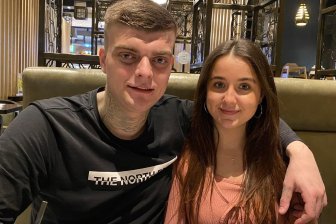India’s COVID-19 death toll has hit 500K. Experts say the real number is in the millions – National
India’s official death toll from COVID-19 crossed 500,000 on Friday, a level many health experts say was breached last year but obscured by inaccurate surveys and unaccounted dead in the hinterlands, where millions remain vulnerable to the disease.
The country, which has the fourth-highest tally of deaths globally, recorded 400,000 deaths by July 2021 after the devastating outbreak from the Delta variant of the coronavirus, according to official data. Some experts believe the figures were much higher.
“Our study published in the journal Science estimates 3 million COVID deaths in India until mid-2021 using three different databases,” Chinmay Tumbe, an assistant professor at the Indian Institute of Management, Ahmedabad who co-authored the study, told Reuters.
Last month, the Indian government dismissed the study as baseless in a notification saying there is a robust system of birth and death reporting.
Story continues below advertisement
Read more:
India’s COVID-19 vaccine campaign picks up in rural areas, but supply issues loom
India’s states record deaths from COVID after collating data from their districts. In the last few months, several states have updated the number of deaths, some under pressure from the country’s top court. In most instances, authorities said there were lapses due to delayed registrations and other administrative errors.
India is currently in the midst of a third wave of the coronavirus led by the Omicron variant, which some top experts say is already in community transmission although federal officials say most cases are mild.
Last month, the government eased testing norms and told states to drop mandatory testing for contacts of confirmed cases unless they were old or battling other conditions. But, with the number of tests falling, the government issued a revised circular warning states they would miss the spread of the virus.
But, as many infected people took the option of not testing at all, total infection numbers may not reflect the extent and severity of cases, said Gautam Menon, a professor of physics and biology at Ashoka University near the capital who has been tracking the spread of the virus.

‘Delta Plus:’ India state health minister orders close monitoring of COVID-19 variant mutation
According to official figures, India’s overall number of COVID infections has reached 41.95 million, the second-highest globally behind the United States.
Trending Stories
-
![]()
RCMP sending additional officers to Ottawa trucker protest after city’s request
-
![]()
Charge laid after B.C. woman killed in U.K.
Story continues below advertisement
To prevent new surges, the government has vaccinated three-fourths of the eligible 939 million adult population with the mandatory two-dose regime.
Indian officials are carrying out a vaccination drive in remote parts of the country to increase lagging vaccination rates, with health workers going door-to-door to administer shots.
“I make them understand how important vaccines are to escape from coronavirus,” health worker Asmita Koladiya, who is forced to take her infant daughter along with her because of a lack of childcare, told Reuters.

COVID-19 shines light on the curse of India’s caste system
Reconciliation with time, grief
India’s cumulative tally of 500,055 deaths on Friday included 1,072 fatalities reported over the last 24 hours, according to the federal health ministry. Out of this, 335 deaths were reported from the southern state of Kerala that has, for weeks, been updating data with deaths from last year.
Story continues below advertisement
Kerala, with less than 3% of India’s 1.35 billion population, accounts for nearly 11% of the total deaths reported in the country.
“Some states such as Kerala are recording their backlog deaths under judicial pressure, although not all states have done that,” Menon said.
Read more:
India has 414K COVID-19 deaths to date. The actual toll could be 10 times higher
In Prime Minister Narendra Modi’s home state of Gujarat, authorities have received over 100,000 claims for COVID-19 compensation, of which 87,000 claims have been approved, according to a senior government official.
The number of claims received is nearly ten times the official COVID-19 death toll of 10,545, as per government data.
“There has not been any under-reporting of COVID-19 deaths…The policy for paying compensation is very liberal as per the Supreme Court’s directives, which is why the number of applicants is more than the COVID-19 deaths,” the official said.
(Reporting by Neha Arora in New Delhi and Sumit Khanna in Ahmedabad; Additional reporting by Shilpa Jamkhandikar in Mumbai; Editing by Sanjeev Miglani, Raju Gopalakrishnan and Michael Perry)
View link »
Source link : CNN
Leave a Reply Cancel reply
RECOMMENDED NEWS
BROWSE BY CATEGORIES
BROWSE BY TOPICS
POPULAR NEWS
2021 © All rights Reserved ChrisAnu













